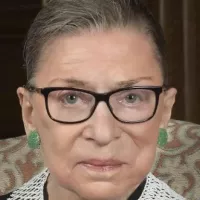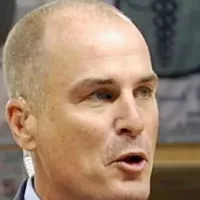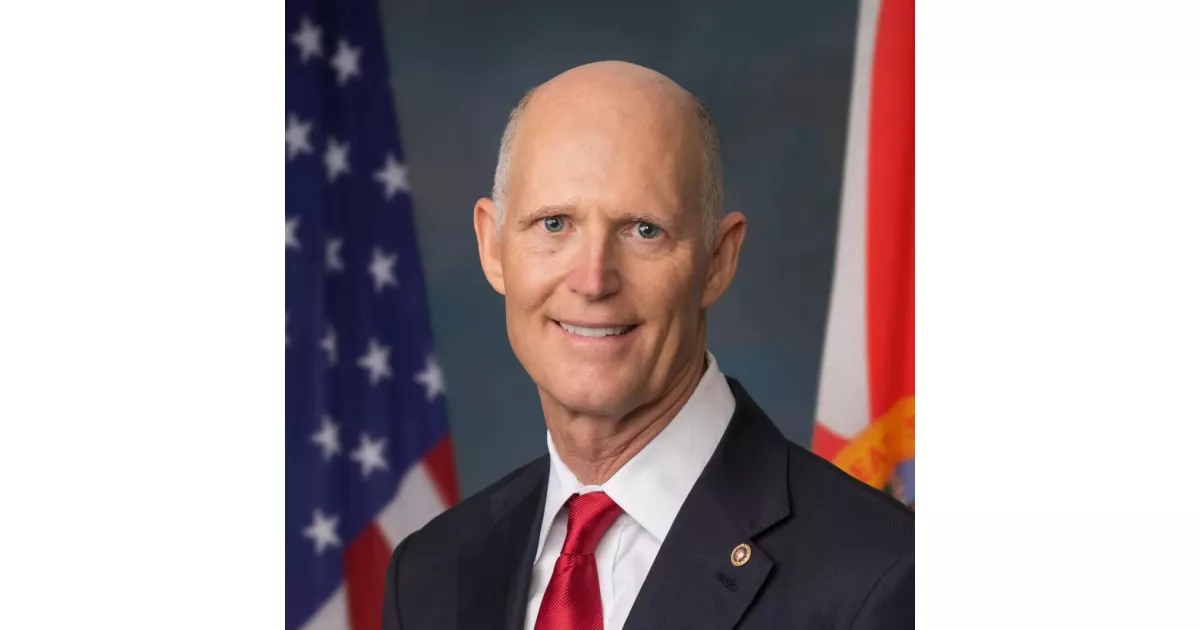Public opinion and media debates around Rick Scott—discover key moments of controversy.
Richard Lynn "Rick" Scott is an American politician currently serving as the senior United States Senator from Florida since 2019. He is a member of the Republican Party. Prior to his senatorial role, Scott served as the 45th Governor of Florida for two terms, from 2011 to 2019. Beyond his political career, Scott has experience as an attorney and businessman. He is also a Navy veteran.
March 19, 1997: FBI Raids Columbia/HCA Facilities
On March 19, 1997, the Federal Bureau of Investigation, Internal Revenue Service, and Department of Health and Human Services executed search warrants at Columbia/HCA facilities and doctors suspected of ties to the company.
July 1997: Columbia/HCA Purchased Controlling Interest in America's Health Network
In July 1997, Columbia/HCA Healthcare purchased a controlling interest in America's Health Network (AHN), but pulled out of the deal because Scott and Vandewater were terminated.
1997: Resigned as CEO of Columbia/HCA
In 1997, Rick Scott was pressured to resign as chief executive of Columbia/HCA due to the company defrauding Medicare, Medicaid, and other federal programs.
2000: Scott Pleaded the Fifth Amendment
During Rick Scott's 2000 deposition, he pleaded the Fifth Amendment 75 times.
2002: Columbia/HCA pleaded guilty to 14 felonies
In 2002, Columbia/HCA pleaded guilty to 14 felonies and agreed to a $600+ million fine for healthcare fraud.
2002: HCA Agreed to Pay the US Government $631 Million
In late 2002, HCA agreed to pay the United States government $631 million, plus interest, and $17.5 million to state Medicaid agencies.
May 23, 2007: Solantic Settles Employment Discrimination Suit
On May 23, 2007, Solantic settled an employment discrimination suit for an undisclosed sum. The suit alleged a policy against hiring elderly or obese applicants. Rick Scott responded to claims of discrimination by noting demographic statistics of Solantic's employees.
2011: Signed Firearm Owners' Privacy Act
In 2011, Rick Scott signed the Firearm Owners' Privacy Act (informally called "Docs vs. Glocks"), restricting doctors from inquiring about patients' gun ownership.
2011: Restrictive Clemency Rules
In 2011, the Brennan Center for Justice described the clemency rules issued by Scott as among the most restrictive in the country.
2012: Voter roll purge attempt
In 2012, Rick Scott attempted to purge non-citizens from voter rolls just before the election; a court stopped him from doing so, and it was revealed that legitimate voters were on the voter rolls. Also during Scott's tenure, Florida had the longest voting lines of any state in the 2012 election.
2012: Court Ruling on Voter Registration Fines
In 2012, a court ruled that Rick Scott could not place heavy fines on groups that registered voters but failed to submit the registrations within 48 hours.
2013: Ordered Pinellas County to close mail ballot submission sites
In 2013, Rick Scott ordered Pinellas County to close down sites where voters could submit mail ballots.
December 2014: Drug Screening Law Declared Unconstitutional
In December 2014, the United States Court of Appeals for the Eleventh Circuit upheld the ruling that Florida's law mandating drug screenings for welfare applicants was unconstitutional. The Scott administration chose not to appeal the decision to the US Supreme Court.
2014: Blocked Gainesville's request for early voting site
In 2014, Rick Scott blocked a request by the city of Gainesville to use a facility at the University of Florida as a site for early voting.
March 2015: Accusations of banning "climate change" terminology
In March 2015, Rick Scott's administration faced accusations of instructing the Department of Environmental Protection officials to avoid using the terms "climate change" or "global warming" in official communications; however, Scott denied the allegations.
2015: Conduent Contract and SunPass Controversy
In 2015, Rick Scott was an investor in Conduent Inc., which was awarded a $287 million Florida contract to manage SunPass. Due to glitches in SunPass, motorists were charged fees, and Scott defended the department's handling of the controversy.
January 2016: US Supreme Court Strikes Down Part of Timely Justice Act
In January 2016, the Supreme Court of the United States invalidated a section of Florida's Timely Justice Act in Hurst v. Florida, deeming a judge's determination of aggravating factors for a death sentence based on a non-binding jury recommendation unconstitutional.
October 2016: Florida Supreme Court Strikes Down New Sentencing Scheme
In October 2016, the Florida Supreme Court struck down a new statute intended to comply with Hurst v. Florida, ruling that a death sentence must be issued by a unanimous jury. This ruling created uncertainty regarding existing sentences and the process for seeking the death penalty.
2016: Refusal to extend registration deadlines after Hurricane Matthew
In 2016, Rick Scott refused to extend registration deadlines after ordering evacuations due to Hurricane Matthew; courts ultimately extended the deadline. He also signed legislation that rejected mail ballots where signatures on the ballot envelope did not match signatures in files; in 2016 a court struck down the law.
March 2017: Former felons file class action lawsuit
In March 2017, seven former felons filed a class action lawsuit, arguing that the clemency board's decisions were inconsistent, vague, and political.
2017: Accusations of fueling HIV epidemic
In 2017, Rick Scott was accused of fueling an HIV epidemic while governor, by ensuring that Florida returned $54 million in unspent federal HIV-prevention grants and blocking $16 million in CDC grants to Miami-Dade and Broward counties. The state accounted for 13% of the country's HIV diagnoses.
2017: Lawsuit over disclosure of wealth
In 2017, a lawsuit was filed by a Democratic activist claiming Rick Scott had not disclosed sufficient information about his wealth and holdings. The appeals court agreed that only the Commission on Ethics had constitutional authority to investigate the complaint.
2017: Provisions of Firearm Owners' Privacy Act Struck Down
In 2017, provisions of the Firearm Owners' Privacy Act, including the part forbidding doctors from asking about a patient's gun ownership, were struck down as unconstitutional by the United States Court of Appeals for the Eleventh Circuit.
February 2018: Court Rules Scott's Felon Voting Rights Process Unconstitutional
In February 2018, a U.S. District Court ruled that Rick Scott's process for restoring felons' voting rights was arbitrary and unconstitutional. The court mandated that Scott create a new process, stating that Scott and his clemency board had "unfettered discretion" to deny voting rights "for any reason."
July 2018: Judge ruled against prohibition of early voting on campus
In July 2018, a judge ruled against Rick Scott's prohibition of early voting on campus, saying the ban showed a "stark pattern of discrimination."
October 2018: Report on Scott's Blind Trust
In October 2018, The New York Times reported that Rick Scott's blind trust was not truly blind, as he had ways of knowing his precise holdings, including investments in companies and funds that his administration's policies could impact.
2018: Water Contamination Crisis
In 2018, Florida faced a water contamination crisis which stirred controversy due to the $700 million cuts made by Rick Scott from Florida's water management districts during his time as governor.
2018: Supported high-speed rail project
In 2018, Rick Scott reversed course and supported a high-speed rail project between Tampa and Orlando when the company All Aboard Florida sought taxpayer-backed funding. He and his wife had invested at least $3 million in the parent company of All Aboard Florida, which had made donations to Scott's political campaigns.
2018: Voting Rights Investigation and Approval Discrepancies
In 2018, an investigation by the Palm Beach Post found that during Rick Scott's governorship, he restored voting rights to three times as many white men as black men, despite blacks comprising a significant portion of those released from state prisons. Only 27% of those granted restored voting rights were black, while 43% of those released from state prisons in the past 20 years were black. This was the lowest percentage of blacks among those whose voting rights were restored in over 50 years.
April 2019: Scott Urges Military Action in Venezuela
In April 2019, amid calls for American military intervention in Venezuela, Rick Scott asserted that the Maduro regime was perpetrating a "genocide" and that the U.S. was "not aggressive enough" regarding the situation. He called on the U.S. to position its military assets in preparation for responding to events in Venezuela.
September 3, 2020: Tampa Bay Times report on "predictive policing" program
On September 3, 2020, the Tampa Bay Times released an investigative report into Rick Scott-appointed Pasco County Sheriff Chris Nocco's "predictive policing" program, which relies on unproven algorithms.
2020: Objections to Electoral Seating
In 2020, after Donald Trump lost the presidential election and made false claims of fraud, Rick Scott voted to object to seating the electors from Pennsylvania but voted against the objection for Arizona. Both objections were rejected by the Senate.
February 22, 2022: Release of 11-Point Plan to Rescue America
On February 22, 2022, Rick Scott released his controversial 11-Point Plan to Rescue America. The plan included proposals such as forcing all Americans to pay some income tax, sunsetting all federal legislation within five years (potentially affecting Social Security and Medicare), closing the United States Department of Education, and completing the Mexico–United States border wall.
August 2022: STOCK Act Violation Allegation
In August 2022, Business Insider reported that Rick Scott allegedly violated the Stop Trading on Congressional Knowledge (STOCK) Act of 2012. This occurred after Scott and his wife sold stock in Emida Corporation worth up to $450,000 in September 2021, but Scott did not report it until August 2022, exceeding the 45-day reporting requirement.
August 2022: Open Letter Discouraging IRS Job Applications
In August 2022, Rick Scott published an open letter encouraging job seekers not to apply for newly funded positions at the IRS. He vowed that Republicans would "defund" those jobs if they took control of Congress in January 2023.
Mentioned in this timeline

Donald John Trump is an American politician media personality and...
Ukraine is a country in Eastern Europe the second-largest on...

Ruth Bader Ginsburg was an American lawyer and Supreme Court...
The Affordable Care Act ACA also known as Obamacare is...

Addison Mitchell McConnell III is an American politician and attorney...
California is a U S state on the Pacific Coast...
Trending

22 minutes ago Sloane Stephens and Jozy Altidore Announce Divorce After Four Years of Marriage

23 minutes ago Jay Bilas Praises UNC; Dixon Struggles; Davis's Job May Be Safe

23 minutes ago Timothée Chalamet and Matthew McConaughey Reunite, Discuss 'Interstellar' and Share Memories.

1 hour ago Cameron Boozer: Duke Forward, Elite Numbers, and Wooden Award Favorite

1 hour ago Josiah Harrell's Sensational UFC Debut After Rare Brain Disease Diagnosis: A Houston Story

1 hour ago Rajah Caruth shines at JR Motorsports; Mayer takes pole; Mears avoids crash.
Popular

Jesse Jackson is an American civil rights activist politician and...

Barack Obama the th U S President - was the...

Ken Paxton is an American politician and lawyer serving as...

Bernie Sanders is a prominent American politician currently serving as...

Michael Joseph Jackson the King of Pop was a highly...
Randall Adam Fine is an American politician a Republican who...
